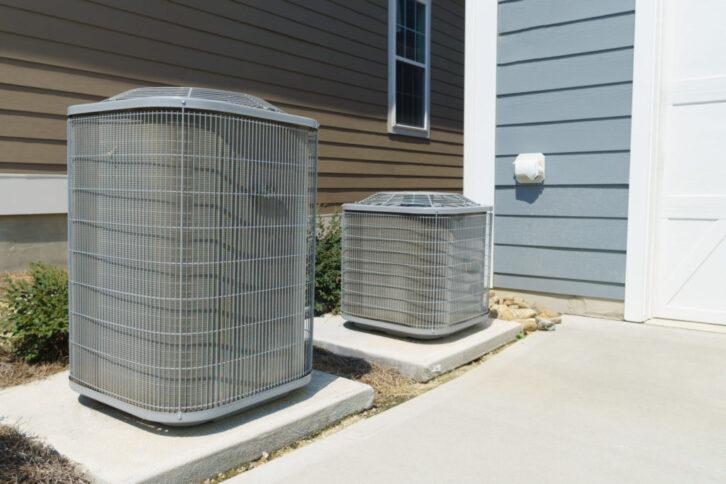10 Things to Look For When Buying a Heat Pump

Heat pumps are a low-cost, energy-efficient alternative to heat and cool homes in moderate climates. Homeowners looking into purchasing a heat pump should look at the reviews before they buy. But not all heat pump reviews are trustworthy, and fewer still contain all the information you need to make an informed decision. In this guide, we’ll walk you through how to evaluate heat pump reviews and make sure you get the right system for your home.
10 things to look for in a heat pump review
When using heat pump reviews to evaluate different models, there are ten important factors you can use to compare them.
1. Type of heat pump
There are three main types of heat pumps: air-source heat pumps, geothermal heat pumps and split-ductless heat pumps. Air-source heat pumps gather heat from the air, while geothermal heat pumps use the ground or a nearby water source for heat. Split-ductless heat pumps are ideal for individual rooms or entire homes without existing ductwork. Make sure you understand which type of heat pump you’re looking at before reading a review any further.
2. Climate
Typically, geothermal heat pumps are the best solution for homes in extreme climates, especially colder regions where temperatures dip below 32 °F during the winter months. However, some newer air-source heat pumps may also perform well in freezing weather. Look at heat pump reviews from users in similar climates to see which models hold up.
3. Energy efficiency
Just because you purchase a heat pump doesn’t mean you’ll automatically save money on your energy bill. Energy efficiency is an essential part of a heat pump review and is typically measured in two ways: HSPF (Heating Seasonal Performance Factor) for heating and SEER (Seasonal Energy Efficiency Rating) for cooling. The American Council for an Energy-Efficient Economy recommends a heat pump with a SEER of at least 15 and an HSPF of at least 8.5.
4. Sizing
Getting the right size heat pump is important as an improperly sized pump can cause a long list of issues, from poor temperature control to unnecessary wear and tear on the pump. Many manufacturers recommend having an expert determine the correct size heat pump for your home as it involves a series of calculations known as Manual J. This method evaluates criteria like climate, number of windows and the amount of insulation in your home.
5. Noise
Heat pumps were once known for their excessive noise, but improvements in technology have led to much quieter systems. Still, look at heat pump reviews to make sure your new system won’t keep you awake at night. Sound ratings are listed in decibels (dB) and the quietest units are typically in the 50s or lower.
6. Installation costs
Most heat pump reviews include unit pricing information, but not all of them take installation costs into consideration. Amana heat pump descriptions remind customers that installation prices vary based not only on the model and size of the unit but also the individual service provider. Talk to your HVAC service professional about the cost associated with installing certain heat pump models.
7. Brand reputation
There are many different brands of heat pumps on the market today, and some are known for being more reliable than others. A decent heat pump review will discuss brand reputation and evaluate the quality you’re getting for your money. Lower-end heat pumps might cost less upfront, but they won’t have the same lifespan as high-quality brands.
8. Brand warranties
What happens if your heat pump breaks down after only a couple of years? Read through heat pump reviews to find out about brand warranties and make sure you won’t be out of pocket in the event that your pump malfunctions. Some brands, such as Amana heat pumps, even offer a lifetime limited warranty on their products.
9. Customer satisfaction
How satisfied are customers with the heat pump you’re evaluating? Look at overall scores, such as star ratings, and scan through reviews for details about what customers do and don’t like about their heat pump.
10. Advanced features
New innovations and advanced features are constantly being introduced to heat pumps. These features can help you save money and get better use from your heat pump. Look for heat pump reviews that specifically mention features such as variable-speed motors, desuperheaters, scroll compressors and back-up burners, which all help your heat pump run more quietly and with less energy.